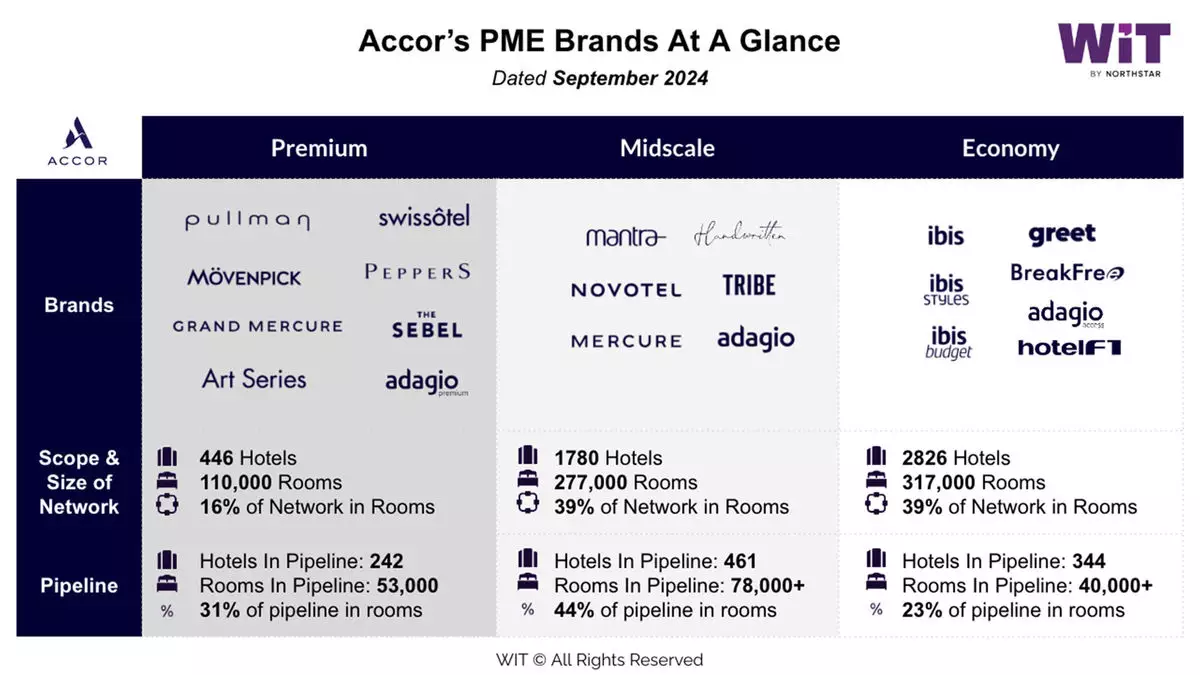In an age where wellness and sustainability are becoming increasingly paramount, the hospitality industry is undergoing a significant evolution. Confidence is exuded by leaders like Benoit Racle and Jean-Yves Minet, who recently engaged with representatives from the 21 brands that dominate Accor’s hotel portfolio. Their encounters signify more than just an introduction; they highlight an urgent need for change in the way hospitality caters to the modern traveler. Meeting at the picturesque Movenpick BDMS Wellness Resort in Bangkok, these executives epitomize the health-conscious lifestyle that is becoming a fundamental characteristic of today’s traveler.
Both Racle and Minet lead with intentionality. Their dietary choices reveal an underlying philosophy that demonstrates a commitment to well-being—Racle chooses decaffeinated beverages, while Minet opts for sparkling water. This preference for healthy alternatives underscores a broader trend: today’s travelers are increasingly prioritizing their health, making choices that allow them to maintain their well-being even while away from home. The rise of the wellness traveler reflects a demographic that is no longer willing to sacrifice their health and fitness for leisure.
The Intersection of Wellness and Lifestyle
The paradigm shift toward a wellness-oriented lifestyle is capturing the attention of hospitality leaders. As Racle notes, wellness is not just an ancillary consideration for travelers; it has become intrinsic to travel itself. The modern traveler, spanning various age groups, from Gen Z to baby boomers, is asking questions about the quality of their sleep, their exercise routines, and their overall wellness options during trips. These consumers have begun to recognize the connection between their travel experiences and their health outcomes, making it imperative for hotels to adapt.
Citing statistical evidence reveals the extent of this transformation. A remarkable 82% of U.S. consumers consider wellness a critical priority in their daily lives, a sentiment echoed by similar statistics in the United Kingdom (73%) and China (87%). These figures illustrate that wellness is not merely a niche market; it has permeated the mainstream consciousness. Brands that fail to align with this trend risk alienating their customer base.
Redefining Social Spaces Without Alcohol
As the statistics regarding youth behavior reveal, there is a notable decline in smoking and drinking among younger generations. With this shift comes the challenge—and the opportunity—of reimagining social spaces that cater to this evolving mindset. Racle’s insights indicate a need for innovative approaches to create atmospheres that feel vibrant and engaging, even without alcohol.
To remain relevant, hospitality brands must embrace this change and provide compelling alternatives that facilitate social interactions while promoting healthier lifestyles. The concept of alcohol-free bars and social venues is gaining traction, particularly in urban areas. This transformation not only supports the wellness trend but also establishes an inclusive environment for all, irrespective of their alcohol consumption choices.
In tandem with the wellness movement is a growing awareness of environmental sustainability. Minet observed this shift firsthand while working in emerging markets. As the middle class expands in regions like Asia and Africa, there is a burgeoning appreciation for sustainable practices. This change is not restricted to affluent countries; it reverberates globally as awareness of environmental issues reaches new heights.
Brands in the hospitality sector are increasingly challenged to demonstrate their commitment to sustainability. Consumers now wield purchasing power that often reflects their ethical values, making it essential for companies to align themselves with socially responsible practices. Decisions reflective of environmental sustainability can become a key differentiator and a source of competitive advantage.
To navigate the evolving landscape of hospitality, brands must fully embrace both wellness and environmental consciousness. For Racle and Minet, understanding their customers’ desires is foundational to redefining the hospitality experience. By addressing these multilayered trends, the industry can create environments that prioritize well-being and respect for the planet.
The future calls for a hospitality sector that not only caters to the physical and emotional needs of travelers but also champions sustainability as a core principle. In this new era, success will hinge on the ability to adapt to these transformational trends, ensuring that the hospitality experience is one that enriches lives and fosters a deep respect for our world. The path forward is one that intertwines health, happiness, and responsibility—a true reflection of the values of the modern traveler.

